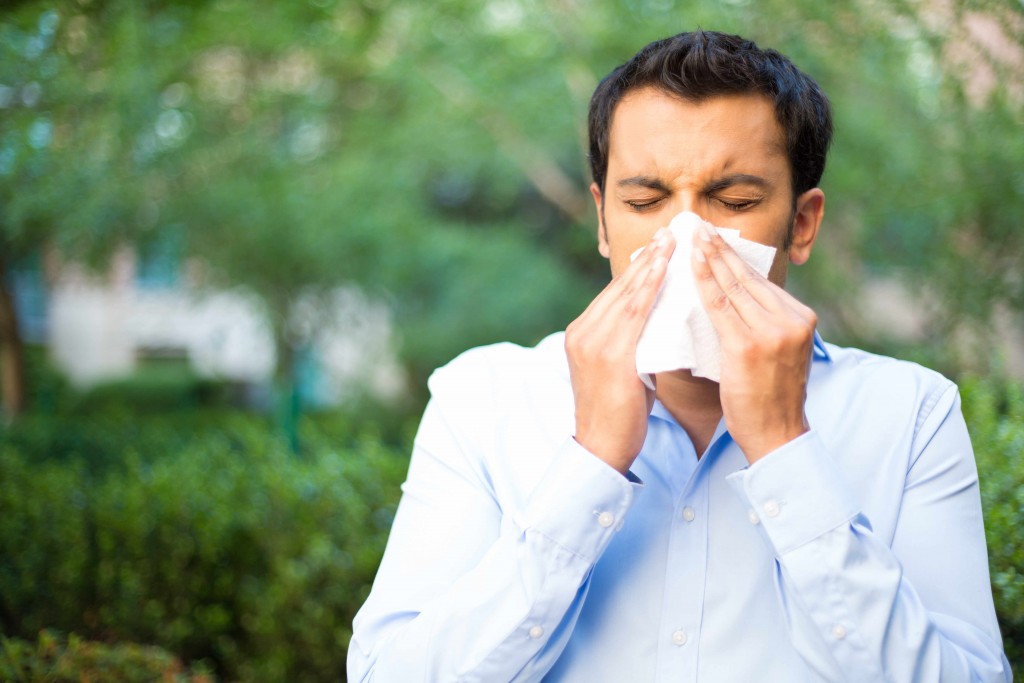-
Mayo Clinic Q and A: OTC Allergy Medications May Not Be Best Treatment Option

DEAR MAYO CLINIC: Are over-the-counter allergy medications safe to take year-round? I’ve been taking them for a couple of years, and they seem to help. Are there any other allergy treatments I should think about using instead?
ANSWER: Allergy medications that you can buy without a prescription are considered relatively safe and can be taken on a long-term basis. These medications may not be the best treatment option, however, if your allergy symptoms are severe or if symptoms persist despite medication. In those situations, consult a physician who is a board-certified allergist. He or she can assess your condition and may be able to recommend a more effective allergy treatment.
There are three main ways to manage allergies: Take medications, receive immunotherapy and make changes to your environment to lessen your exposure to substances that trigger an allergic reaction.
Many people try over-the-counter allergy medications first. While a number of these medications exist, the most common contain an antihistamine agent. This blocks histamine — a key molecule in allergic inflammation — from binding to its receptor on the cells.
If you choose a nonprescription antihistamine, make sure you know what ingredients are included in the medication. Those that contain diphenhydramine or chlorpheniramine are older-generation, short-acting drugs that often cause drowsiness. Other side effects of these medications may include dry mouth, blurring of vision, nausea or headaches.
Newer antihistamines that contain cetirizine, loratidine or fexofenadine tend to trigger less drowsiness, and the effects last longer. They may cause some side effects, such as dry mouth or abdominal pain.
Another type of allergy medication that recently was approved for purchase without prescription is intranasal corticosteroid spray, such as fluticasone or triamcinolone nasal spray. These medicines are sprayed or inhaled into the nose to help relieve stuffy nose, nasal irritation and other symptoms of allergies.
For allergic symptoms that are mild, last only a short time or happen only a few months a year, over-the-counter medications generally are a good choice. If your symptoms are severe, persist continuously or do not respond well to nonprescription medication, consultation with an allergist is recommended.
An allergist can clarify whether your symptoms truly are being caused by allergies versus some other conditions that can mimic allergies, such as nonallergic rhinitis.
If symptoms are due to an allergy, an allergist often can identify the cause and pinpoint what is triggering your reaction. Once an allergy is diagnosed, treatment could be a combination of prescription and nonprescription medications. Or, other strategies, such as allergen avoidance and allergen immunotherapy, may be appropriate.
Allergy symptoms are the result of an immune response to a substance that usually shouldn’t cause an immune reaction. Changing your habits to avoid exposure to those allergy-causing substances, called allergens, potentially can reduce your symptoms. For example, if you have a ragweed pollen allergy, wearing a tight-fitting face mask can reduce inhalation of pollen when you are outdoors in the fall. Your allergist can suggest allergen avoidance techniques that fit your situation.
The other treatment option, allergen immunotherapy, is available as an injection and in an oral tablet form. The injection form — sometimes referred to as an allergy shot — has been around for almost 100 years. It has been studied in great scientific detail and often can be very effective in relieving allergy symptoms. Oral immunotherapy to grass and ragweed recently was approved by the U.S. Food and Drug Administration, and others are in the works. These therapies often are effective, but they may have some treatment-specific concerns that your allergist can review with you.
The bottom line is that nonprescription allergy medications can be considered safe. But, if you have to take them all of the time, or if they aren’t doing enough to relieve your symptoms, it’s time to talk with an allergist to investigate your condition and find a better treatment approach. — Dr. Rohit Divekar, Allergic Diseases, Mayo Clinic, Rochester, Minnesota







